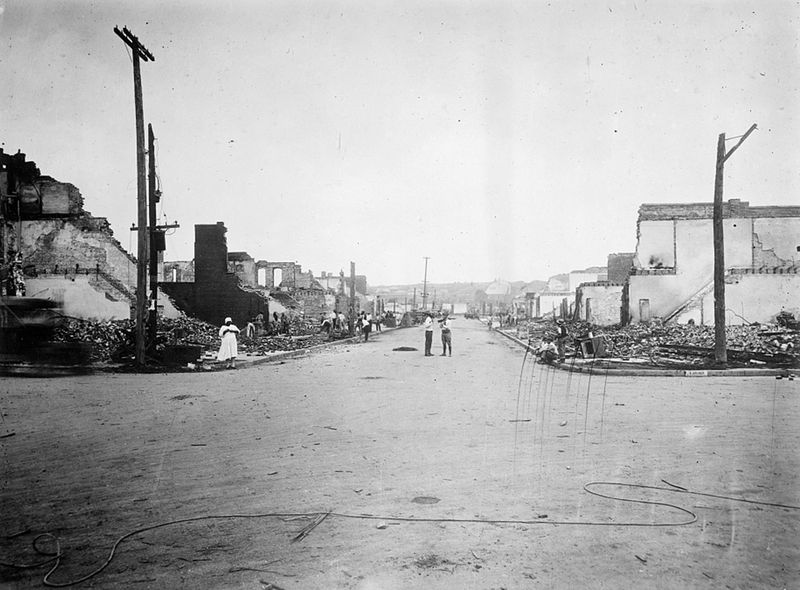(Reuters) – The three known living survivors of the 1921 Tulsa massacre that saw a white mob murder scores of Blacks and raze much of their neighborhood can proceed with a lawsuit seeking reparations for the death and destruction, a judge in Oklahoma ruled on Monday.
Tulsa County District Judge Caroline Wall rejected motions by the defendants, which include the city of Tulsa, to dismiss the case. The next legal steps were unclear.
The lawsuit seeks financial and other reparations, including a 99-year tax holiday for Tulsa residents who are descendants of victims of the massacre in the north Tulsa neighborhood of Greenwood. It is estimated that as many as 300 people, most of them Black, died.
Among the plaintiffs are Lessie Randle, who survived the massacre as a small child, and a descendant of the owner of the Stradford Hotel, at the time of the massacre the largest Black-owned hotel in the U.S. Greenwood was nicknamed the Black Wall Street.
The violence erupted after a white woman told police that a Black man had grabbed her arm in an elevator in a downtown Tulsa commercial building on May 30, 1921, according to an account by the National Endowment for the Humanities.
The following day, police arrested the man, whom the Tulsa Tribune reported had tried to assault the woman. Whites surrounded the courthouse, demanding the man be handed over. World War One veterans were among Black men who went to the courthouse to face the mob. A white man tried to disarm a Black veteran and a shot rang out, touching off further violence.
Whites looted and burned buildings and dragged Blacks from their beds and beat them, according to historical accounts. Whites were deputized by authorities and instructed to shoot Blacks.
No one was ever charged in the violence.
Deep economic and health disparities remain between Blacks, who still live for the most part in north Tulsa, and whites.
(Reporting by Brad Brooks in Lubbock, Texas; Editing by Leslie Adler)
























